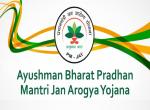“Things fall apart; the centre cannot hold,
Mere anarchy is loosed upon the world”
(The Second Coming by William Butler Yeats)
June 25, 1975 was the day on which a state of Emergency was declared by Indira Gandhi as Prime Minister under Article 352 of the Constitution, with a pliant President, Fakhruddin Ahmed quietly appending his signature to the Proclamation of Emergency. If 1967 was the year in which the purchasing of power by bribing legislators became one of the ways of forming a government, the year 1975 was equally critical because for the first time India witnessed an attempt to impose authoritarian rule by misusing the Constitution. The first event introduced institutionalised corruption into our polity and the second event attacked the institutions of democracy and the tenets of democratic government, up to an including suspension of the Fundamental Rights. Both the events have been body blows to our polity, from which it has failed to recover fully even today.
One of the consequences has been that our legislators themselves feel that they command a price which must be paid if a person or party wants to come to power. The election results may be indicative of the support enjoyed by a particular party in the legislature, which means that as per our Constitution the Head of State would invite the representative of the majority group or largest group to form the government. However, in the absence of an absolute majority the smaller political groups in the Legislature bargain with the largest so that the largest group can lay a claim to government formation. In fact in 1967 when D.P. Mishra was Chief Minister of Madhya Pradesh and the Congress Party enjoyed a majority, a splinter group of the party led by Govind Narain Singh openly used bribery to entice both opposition members of the Legislature and a section of Congress legislators to break away and support a government to be formed by the newly created Samyukta Vidhayak Dal (SVD). Here is an example of how even a party enjoying a majority in the House could not complete the full term in office. The deleterious effect of this development has been that for over two decades now we have had unstable coalition governments in which the key to survival is possessed not by the largest party but by the splinter groups and the regional parties which support it. The objective obviously is to somehow capture power but it certainly is not to use that power to provide good governance. Under these circumstances it is not surprising that the Prime Minister could offer as an excuse in not interfering in the 2G scam or the Commonwealth Game scam that the compulsions of coalition politics prevented him from taking action even against corrupt ministers. The fact is that government virtually told one of its support groups, DMK, that its ministers could do what they like, break as many rules as they like and completely abandon all norms of financial propriety, on condition that the party would continue to support the ruling coalition so that it could survive.
Democracy is a game which has its own rules, which have been grossly misinterpreted in India. In a democracy the first principle is that there has to be agreement to disagree. In other words, on the fundamentals of good government there has to be general agreement cutting across party lines, though the methods of achieving good government would differ and on this there could be disagreement. Once this principle is accepted, then government would be according to the ideology and programmes of the ruling party, with the opposition providing constructive criticism and opposition but not mindlessly attacking government for the sake of opposition. In India our parties do not accept the principle of agreeing to disagree, with the result that every attempt is made to paralyse government, blackmail government or to otherwise prevent it from performing its fundamental duty of governing. Heeding the voice of the opposition is perfectly legitimate. Surrendering to the blackmail of the opposition or, worse still, of the coalition partners, is a total negation of government and that is the corner into which we have painted ourselves.
The Emergency attacked all our democratic institutions and one is saddened by the fact that by and large every institution accepted this lying down. The Legislature abandoned its function of calling government to account and instead became a rubber stamp. The President of India forgot his own oath sworn under Article 60 of the Constitution whereby he undertook to “preserve, protect and defend the Constitution and the law”. The wording of clause one of Article 352 is, “If the President is satisfied that a grave emergency exists whereby the security of India or any part of the territory thereof is threatened by war or external aggression or armed rebellion, he may, by proclamation make a declaration to that effect …” . Such proclamation has to be placed before each House of Parliament within one month of its notification and Parliament is required to decide on the validity or otherwise of the proclamation. In 1975 there was a certain degree of unrest because of Jaiprakash Narain’s Sampoorna Kranti Movement. There were threatened strikes but there was no large scale militancy or rebellion of the type we are facing today in the Naxalite districts or what was faced in the eighties of the last century in the Punjab because of the Khalistan Movement. What we had was a judgement of the Allahabad High Court setting aside the election of Indira Gandhi on grounds of corrupt practices and her disbarment for elections for a period of six years. Rather than leave office Indira Gandhi chose to declare a state of Emergency, thus making a complete mockery of the Constitution. The after effects of this were not pleasant for the Congress, but in the ultimate analysis the damage done to the polity and institutions of democracy has still not been repaired. The brief foray into authoritarian government has brought the government itself into such contempt that governance has become increasingly difficult in India.
The Constitution of India is a document which tells us how the State will be structured and how the country will be governed. The Preamble to the Constitution prescribes that India will be democratic in polity, there would be separation of powers between the Legislature, the Executive and the Judiciary, there will be the rule of law and that all citizens will be equal before law, the State will promote both harmony and public welfare and governance will be aimed at providing the citizens with an environment in which they can enjoy the fundamental rights and dwell within a just social order in which their welfare will be promoted and enhanced. It is the job of the Legislature to provide the laws which would enable India to be governed according to the above principles, it is the duty of the Executive to ensure that government is delivered to all the people in accordance with laws and the principles of justice, liberty, equality and fraternity mandated by the Constitution and it is the Judiciary which will ensure that every citizen has equitable access to good government by adjudicating upon all issues involving the people and the government. This is the very harmonious Constitution and if implemented properly it would certainly ensure the delivery of good government to the people. Unfortunately this has not happened.
Breakdown of government in this country can be divided into different segments. Starting with foreign policy, Jawaharlal Nehru ordained and then implemented a foreign policy in which we adopted nonalignment as the basis and tried to keep equidistance from the two major Blocs, the Western and the Soviet, in the matter of foreign relations. It is true that economic compulsions made us lean more towards the Soviet Bloc, but it was more like the Leaning Tower of Pisa rather than a total leftist prostration on our part. Four major factors dominated this policy; (1) The United States of America (2) The Soviet Union. (3) Pakistan (4) China. The policy received a rude shock with the break-up of the Soviet Union and the end of the Cold War. Our socialist inhibitions prevented us from reacting immediately to the new situation, with our pro Soviet policy being carried over into an era when Russia had replaced the Soviet Union. It took a great deal of time to apply course corrections, partly because the Foreign Office suffers from a Dodo complex, the politicians are largely ignorant about foreign policy and its implications and the ghosts from the past continue to haunt us. China seized the opportunity to maintain political independence, but to welcome economic development in which the West became a partner. That is why in the economic field China has raced ahead of India.
The above situation can be remedied but in the process, with our obsession with Pakistan, we have neglected those neighbours who are integral to India, such as Nepal, Myanmar, Sri Lanka and Maldives. We have no clear cut Nepal policy and still have failed to understand the Maoist phenomena which have overtaken Nepal and moved it closer to China. Nepal has very close links with India, including sixty lakh Nepalese living in India. Theoretically we hold several levers in Nepal but our total lack of governance and absence of a consistent, forward looking Nepal policy has delivered most of the levers into Chinese hands. Regarding Myanmar our concern has been the Western concern about human rights in that country. Myanmar has its entire southern border with India and the entire northern border with China. Like Nepal it, too, is a cockpit for the fight between India and China. Our foreign policy should have aimed at safeguarding our interests in Myanmar and not only had to look for a mirage of democracy in a country where that word is differently understood. We have frittered away our enormous advantage in Myanmar and China has stepped into the vacuum. We have seen this happening in Sri Lanka with the Chinese investment in the Hambantota Harbour and our declining economic clout in that country. Now the Chinese are stepping into the Maldives in a big way. All these countries are somewhere on the periphery of our vision, which is totally focused on Pakistan and Afghanistan. In the process Chinese influence is growing and that of India is shrinking. No government is addressing this issue bodily, not because government is incompetent but because government is nonexistent.
Turning to domestic affairs, corruption is just one of the issues, but which has now virtually overtaken everything else as government strives to survive Anna Hazare. The real issue is the utter contempt for law that Indians have developed as a people. The democratic right of dissent is built into Article 19 of the Constitution, but the right to anarchy is denied by clause (2) of the same Article. To preserve the sovereignty and integrity of India, friendly relations with other States, public order, decency and morality, the State can and must curb the exercise of fundamental rights in a manner which harms the rights of other citizens. Article 19 (1) (d) says that every citizen has the right to move freely within the territory of India. There is no proviso to this Article which says that this right can be exercised provided there is no rasta roko, Bharat Bandh, dharna, chakka jam or the multitude of methods used by agitators to bring life to a standstill. We have witnessed the Gujjar movement, the Jat movement, etc., which brought large parts of Rajasthan, Haryana and Uttar Pradesh to a halt, prevented the movement of people and goods by road or rail and disrupted every aspect of life and prevented large sections of the people to move freely or carry on their occupation uninterrupted. Government did nothing, paralysed as it was by the fear that action on its part would lose it votes and might require it to use force to disperse unlawful assemblies.
Take the recent agitation for Telangana as a separate State. Andhra Pradesh went through a traumatic period when Potti Sriramulu fasted unto death for separation of Andhra Pradesh from the Madras Presidency. This brought life to a halt, led to violence and ultimate surrender by government in conceding linguistic States. The process of unification completed by Sardar Patel was reversed by this one decision in 1956 and the vivisection of the country continues. Bombay State was separated into Gujarat and Maharashtra, Bihar was divided into Jharkhand and Bihar, Madhya Pradesh between Chattisgarh and Madhya Pradesh, Uttar Pradesh between Uttarakhand and Uttar Pradesh and Punjab between Punjab, Haryana and Himachal Pradesh. The latest in the series is Telangana which aims at separating old Hyderabad State Andhra areas from Andhra Pradesh and in order that the demand is fulfilled the leaders of the movement have resorted to widespread violence and lawlessness. Railway routes are blocked, roads closed down, educational institutions forced to shut and business has come to a stand still. Government watches as a mute spectator and it is the citizens who suffer. It is no longer a case of a legitimate demand being pushed. It is now a case of power hungry politicians who think that they can benefit by smaller states because that would create many more jobs at political level for them and the agenda of each of these politicians is not the furtherance of welfare but the furtherance of their own personal interests. Peaceful agitation is legitimate but, as stated already, an agitation which prevents even one citizen from exercising his right to do business or to move freely is no longer legitimate. The State must intervene forcefully to ensure that the law is observed and implemented.
Let us come to militancy. About two hundred districts of India, that is, one third of our land mass, is affected by the Naxalite movement which is armed, violent, extremely willing to kill and is aimed at destroying the Indian State. Despite the fact that the areas of Naxalite operations are tribal, undeveloped and backward, there can still be no justification for armed rebellion which has killed hundreds of policemen. A purposeless government has allowed the situation to develop to a stage where there is almost a state of civil war between government and the militants. The so called activists, instead of insisting on good government, want government to withdraw and leave the field open to those who want to destroy the Indian State. Any government worth the salt would make restoration of order the first priority, which means that it would take all necessary steps to destroy the armed groups. It is only thereafter that development can be brought to these districts so that injustices of the past are removed and people brought into the mainstream. Government dithers, in these districts government withers and literally things fall apart.
The situation is worse in Jammu & Kashmir. That State acceded to the Indian Union through its ruler, the Maharaja, who was the only legitimate authority at the time when the British lapsed paramountcy. This applied to every other Indian Princely State and in every case it is the ruler who signed an Instrument of Accession to the Indian Dominion. Pakistan invaded Jammu & Kashmir and India responded only after the State acceded to India. Jawaharlal Nehru made the fundamental mistake of going to the United Nations and treating Jammu & Kashmir differently from other States, but the mistake of one person cannot haunt us for ever. That state is a part of the Indian Union to the same extent as Goa, Gujarat, Assam or Uttar Pradesh. Yet there are people like Prashant Bhushan who have the nerve to say that if Jammu & Kashmir breaks away, even becomes Afghanistan, there is nothing wrong with this. This goes beyond the fundamental right to the freedom of speech because it is a direct attack on the integrity of India as a nation. A good government, a strong government would treat this as an offence under section 121 and section 124 - A of IPC and ruthlessly prosecute the case so that Prashant Bhushan is brought to justice. Instead the government invites him to the High Table of Policy. One feels like turning one’s face to the wall and weeping. This is true of the entire handling of the Anna Hazare movement, which had been separately commented upon in other articles. What else is one to expect from a government except to quote from Yeats’ poem,
“The best lack all conviction, while the worst
Are full of passionate intensity”
---------------------------------------------
Published Date: 27th October, 2011









Post new comment